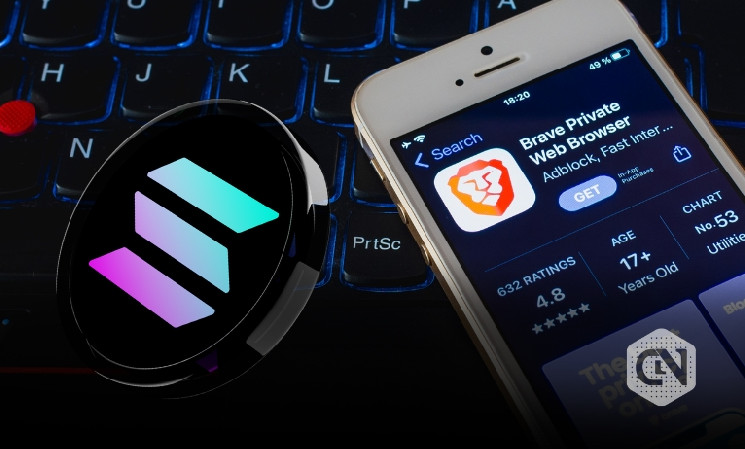
Brave Rewards announces the commencement of self-custody BAT payouts. It will initially be limited to a small number of invitees. It will then become accessible to Brave users worldwide. They will receive BAT earned through BAT Rewards, which will be transferred to a wallet address in their sole possession on the Solana blockchain.
Rewards on Solana are being released in the form of an invite-only factor, starting with a restricted set of early users. This action will be implemented via a communication that will occur within the Brave Rewards interface. By accepting the invitation, users can establish a connection with a self-custody Solana address and acquire BAT on-chain.
In order to establish a connection between a Solana address and Brave Rewards, users will be obligated to verify their own address using a Solana wallet. This can be accomplished by utilizing Brave Wallet, the integrated wallet of Brave, or by employing an intermediary browser extension like Phantom.
In Wormhole-bridged SPL-BAT, when a user is linked, he will receive monthly BAT rewards on-chain to his Solana address.
Brave selected Solana as the platform to distribute on-chain Brave Rewards owing to its efficient transactions and economical pricing, both of which directly influence the distribution of BAT earnings among a substantial number of users.
This novel approach to BAT allocation eliminates numerous challenges that users encounter during the enrollment process to Web3. Withdrawals do not incur any fees, given that the Solana wallet is controlled by the user. Users can acquire and generate BAT on-chain. This can be accomplished by contributing to a user’s preferred Brave producers and exchanging a big volume of tokens using the swap function in Brave Wallet. Then there’s the purchase of a .SOL domain from Bonafide, earning trading fees by depositing SPL-BAT into Orca liquidity pools and minting and purchasing NFTs with SPL-BAT.
Recent developments on the Brave blockchain include an on-chain contributions function that implements a Web3 standard method for users to support their preferred developers, similar to the SPL-BAT they receive.
